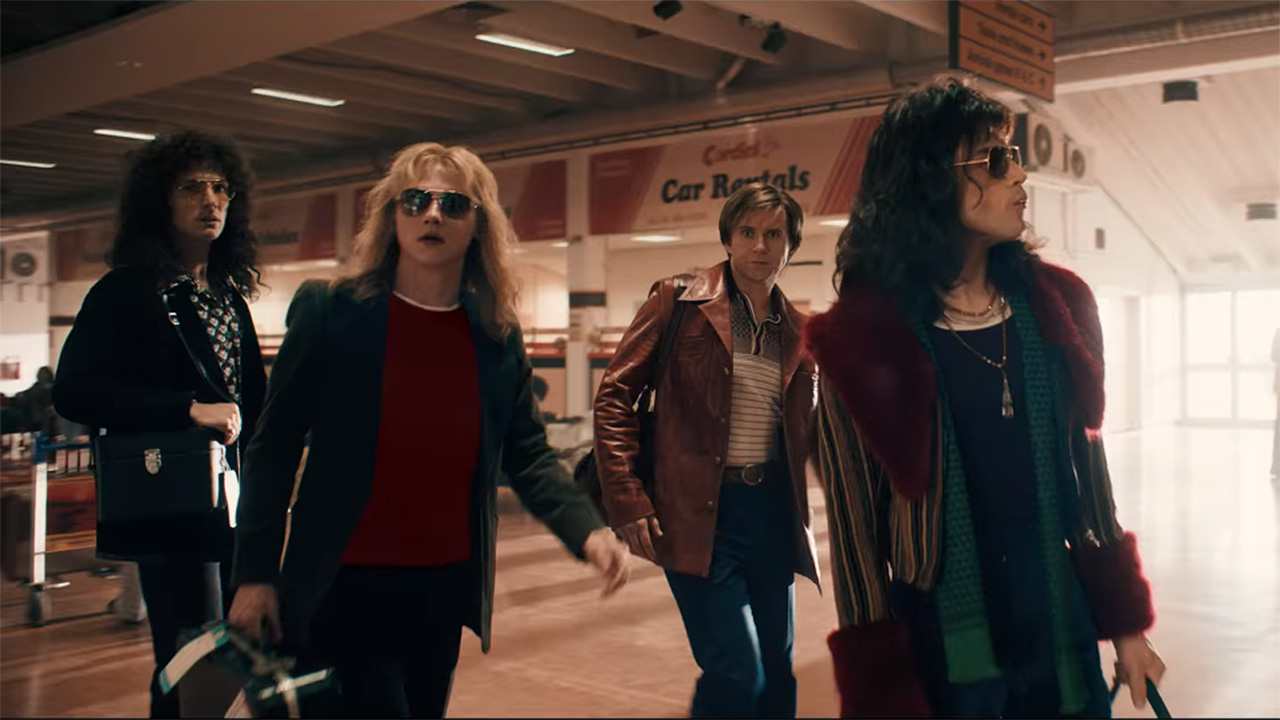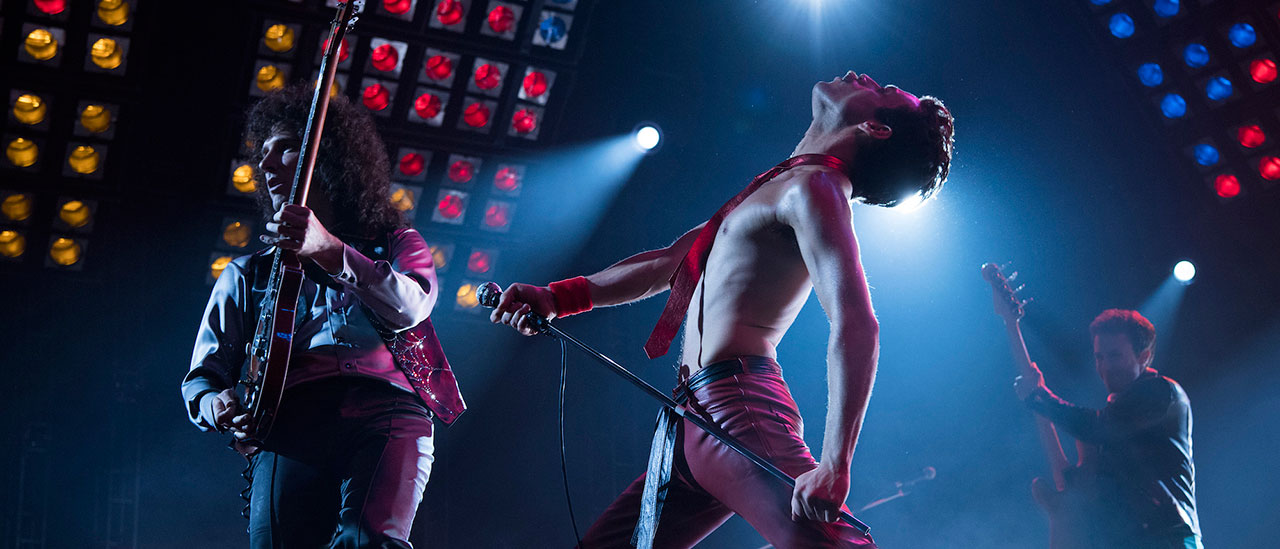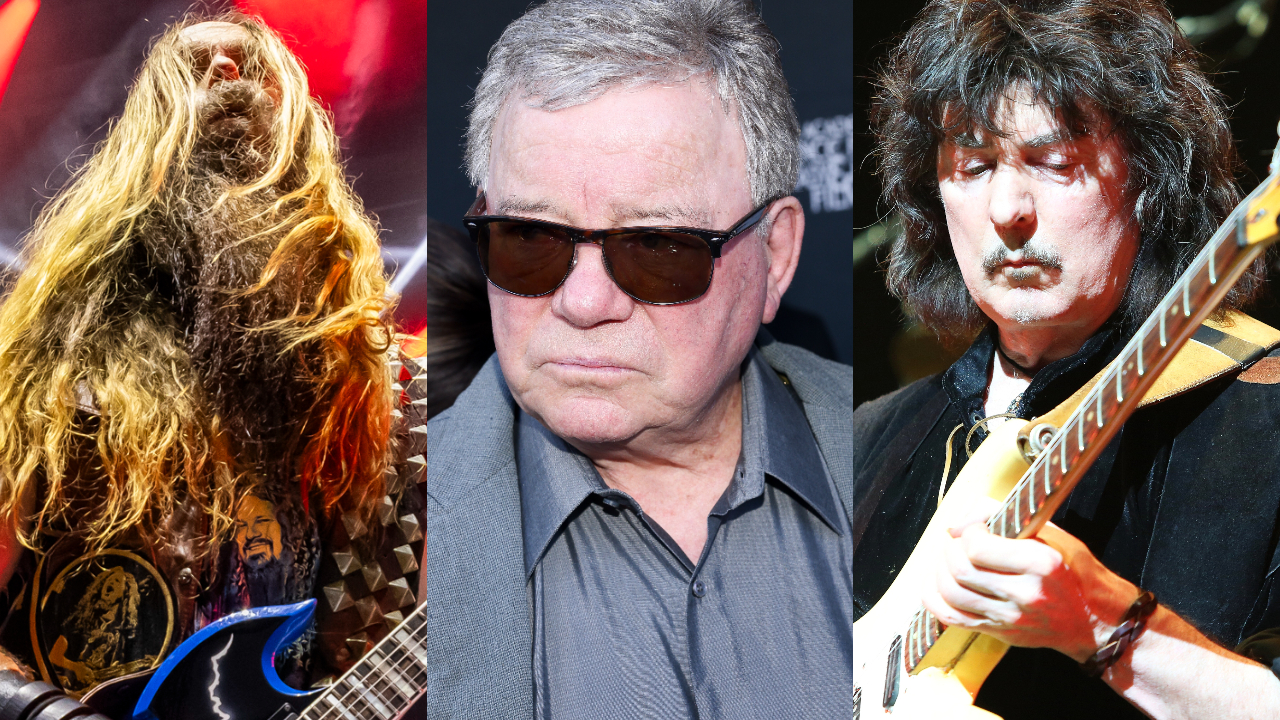You can trust Louder
It’s been a long time coming, but the Freddie Mercury biopic is finally here… and it’s mostly glorious. Every bit as witty and charming as the man himself, Bohemian Rhapsody covers the iconic frontman’s assimilation into the Queen lineup (replacing Tim Staffell) in 1970 until their triumphant performance at Live Aid in 1985, all the while focusing on Freddie’s journey of self-discovery.
Sacha Baron Cohen was originally lined up to play the superstar - he apparently abandoned ship after disagreements about the direction the plot was heading - but it’s hard to see anyone putting on a better display than Rami Malek. Capturing the singer’s awkward mannerisms, his showmanship and his swagger, Malek looks at home as Freddie Mercury. In fact, the whole cast perfectly resemble their rock‘n’roll counterparts, with Gwilym Lee embracing Brian May’s overwhelming Britishness and (most importantly) his hair, with ease.
While Freddie’s tale is ultimately one of sadness, Bohemian Rhapsody is filled with laughs. The familial ribbing of Queen’s members and the dry sarcasm of Freddie himself pack the film with homegrown humour, which only bolsters the movie’s inherent warmth and the viewer's affection for all four musicians. Mike Myers’ subtle nod to Wayne’s World is also a brilliant touch.
When Freddie’s life does go off the rails, Bohemian Rhapsody shows a darker edge. The chaotic press conference, the hiatus, the treachery of Mercury's personal manager Paul Prenter (played by Allen Leech), and finally his illness: it's all handled with the seriousness it deserves, never poking fun or playing down the severity of what Freddie went through.

Heartstrings are well and truly tugged throughout the film. The portrayal of Freddie’s relationship with his father and his lifelong friendship with Mary Austin (Lucy Boynton) are both deeply moving. Watching Freddie’s downward spiral and knowing where it leads is heartbreaking to watch, as Rami Malek reduces the previously joyful Freddie to a shadow of his former self.
There are some shortcomings. There's no real detail about who Freddie was before he met Brian and Roger, only that he arrives a full-formed singer with extra incisors for extended vocal range. The drug-fuelled parties aren't as debauched as we've been led to believe – bar some suspicious powder on a nearby table – and we never really see how his new friends lead Freddie astray. Freddie's hedonistic lifestyle and homosexual relationship with Paul often feels like a subplot in the man's own life, with redemption sought at Live Aid.
The pièce de résistance comes in the final scene, as Queen’s set at Live Aid is re-created and re-performed. It's played as if the band know that Freddie is dying, although a conventional retelling of history has him diagnosed two years later. Puzzling timelines aside, the four men reenact Bohemian Rhapsody, Radio Ga Ga and We Are The Champions to what looks like a jam-packed Wembley Stadium, in a seriously impressive feat of cinematography. The cast’s ability to play along with Queen never looks faked, with Rami’s miming ability putting most pop stars to shame. If you never saw Queen – or if you were in the front row a hundred times – seeing this epic, almost 20-minute long performance from the cast will leave you with a lump in your throat.
Sign up below to get the latest from Classic Rock, plus exclusive special offers, direct to your inbox!
Bohemian Rhapsody, like the song itself, is a colourful journey, using everything at its disposal, veering from ecstasy to tragedy. It’s a very British movie for a very British band. They are and will always be the champions.
Luke Morton joined Metal Hammer as Online Editor in 2014, having previously worked as News Editor at popular (but now sadly defunct) alternative lifestyle magazine, Front. As well as helming the Metal Hammer website for the four years that followed, Luke also helped relaunch the Metal Hammer podcast in early 2018, producing, scripting and presenting the relaunched show during its early days. He also wrote regular features for the magazine, including a 2018 cover feature for his very favourite band in the world, Slipknot, discussing their turbulent 2008 album, All Hope Is Gone.

